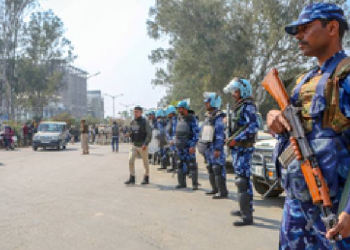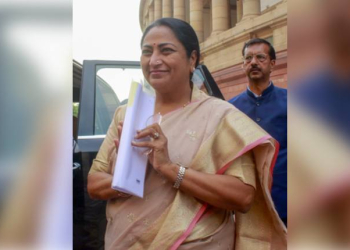New Delhi: When you walk into the plush RD Mall in Gurugram, you will find a kiosk selling Afghan dry fruits, nuts of all varieties, asafoetida, almond oil and saffron among other items. The kiosk, run by Afghan brothers Aziz Ullah Azizi and his older sibling Atiullah Azizi, is a must stop for most people visiting the mall.
“Even if people don’t buy the items that we sell, they stop by to have a conversation with us, everyone here makes us feel comfortable,” Atiullah told India Narrative.
Exactly a year ago, the messy pull-out of the US troops from Afghanistan hit headlines across the world. The Azizi brothers, like most Afghans living in India, have not visited home for the last one year. Many of their family members are still in Afghanistan. But for them business has not been severely dented. “Only during the initial phase — just after the new regime came over — we had problems getting the goods but gradually life has become normal,” he added.
Since last year, flights between the two countries have been suspended which has dealt a blow to the traders. The Azizi brothers pointed out that most of the goods are now being sourced through the integrated check post at the Wagah border. “This is cumbersome and pushes up the cost by at least 15 to 20 per cent,” Atiullah said, adding that with the festive season approaching, he is now looking forward to a surge in sales.
The two countries had been connected by air freight corridors — Kabul, Kandahar, Herat with New Delhi, Mumbai and Chennai. Since the commencement of an air freight corridor in 2017, over 500 flights have ferried more than 5,000 metric tons of cargo directly benefiting Afghan farmers and small traders, Carnegie India in a report said.
In 2020-21, India’s total imports from Afghanistan were estimated at about Rs 3,700 crore of which fruits and nuts accounted for more than Rs 2,300 crore.
But now, goods can only be sourced either though the Wagah border or other countries. Once the goods are brought into India through the Wagah border, they are then distributed to other cities which include Mumbai, Kolkata and even in the metros in southern India.
“Due to the rise in costs, the items that we sell are now costlier but the quality is good and Indian traders are willing to pay the additional cost,” Atiullah pointed out.
Demand for nuts and dry fruits in India is also significantly rising with changing lifestyle.
A retailer sourcing his nuts and dry fruits from Afghanistan said that while these items were earlier in demand only during the Diwali period and through the winter season, changing lifestyles and the thrust on nuts as a healthy source of nutrients have led to a surge in their sale throughout the year.
An official source, however, told India Narrative that there is no immediate plan to open up trade with Afghanistan immediately. Until trade is officially opened between the two countries, traders will have to continue sourcing their goods through indirect routes.
Meanwhile Aziz Ullah said India has been a “perfect home”.
“We don’t miss home too much, we get our kinds of bread (rotis), meats, vegetables and fruits. Many family members are here… We feel at home. There is no problem at all for us,” he said.
At present, more than 20,000 Afghans are living in India. Many other Afghan traders have not been as lucky. Another Afghan refugee living in India said that the slowdown in trade has impacted their income levels.
“The two countries share a close cultural bond and common history, we are hoping that trade between the two nations resume soon,” the refugee who wished to remain anonymous said.
The Ministry of External Affairs earlier tweeted saying that India stands in solidarity with the people of Afghanistan, with whom we share centuries old ties. It even provided assistance to the country after it was hit by a devastating earthquake in June.
(IANS)




















